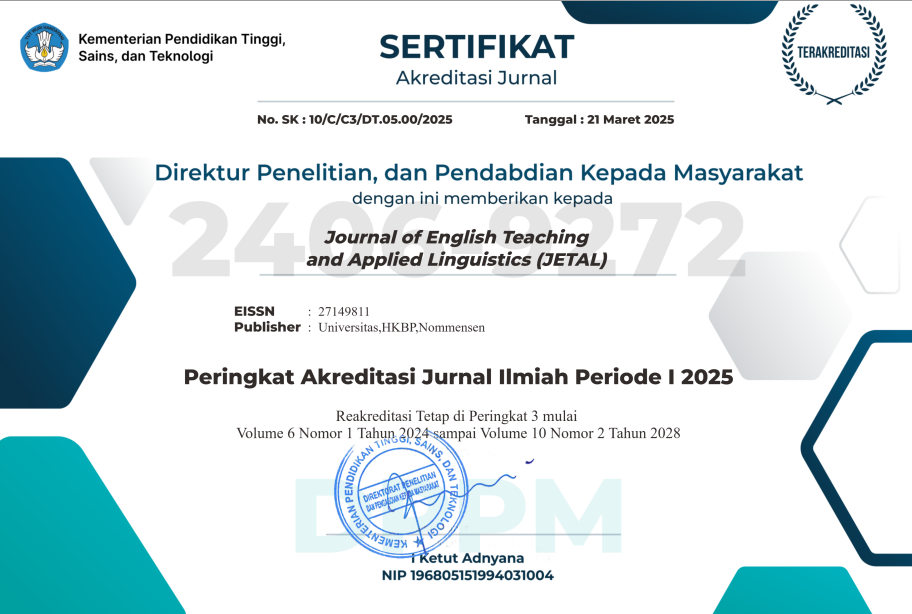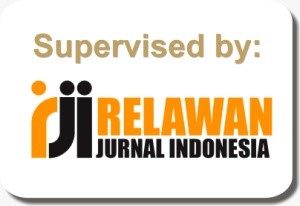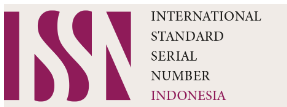The Unleashing Your Writing Potential: Enhancing Skill With Mind Mapping Technique
Abstract
Abstract
This research aimed to find a way to improve writing skills through mind mapping. This study was conducted in three cycles following the procedures for action research, namely planning, implementing, observing, and reflecting. This research used pre experimental research consisting of two cycles, and each cycle consisted of two sessions. Besides, the research was preceded by an initial reflection to know the subjects' pre-existing ability in the pre-cycle. The whole process of the present study consisted of three main phases: pre-cycle, cycle I, and cycle II, in which each cycle consisted of four interconnected activities: planning, action, observation, and reflection. The researcher used a pre-test, post-test, and questionnaire to analyse the significant improvement. The researcher used statistics using the main score formula to analyse the data. The finding shows that the mean post-test score is higher (87) than the pre-test score (70). Based on these results of the post-test, the questionnaire result showed positive responses from the subjects toward implementing the mind mapping technique. In other words, this study establishes that 8th-grade students' writing ability in SMPN 3 Abiansemal, Badung, Bali could be enhanced by her mind mapping technique.
Keywords: Improving , Mind Mapping Technique , Writing Skill , English language
References
Ary, D., Jacobs, L. C., Sorensen, C., and Razavieh, A. (2010). Introduction to Research in Education (8 th ed.). New York: Wadsworth, Cengage Learning.
Brown, H. D. (2004). Language Assessment: Principles and Classroom Practice.San Francisco: Longman.
Burns, A. (2010). Doing Action research in English Language Teaching: A Guide for Practitioners. New York: Routledge.
Graham, S. and Perin, D. (2007). Writing Next. New York: Carnegie Corporation.
Kusmirayanti, N. P. A. E. (2015). TeachingWriting through Mind Mapping Technique of the Eighth Grade Students of SMPN 2
Pekutatan in Academic Year 2014/2015(Unpublished Bachelor Thesis).Mahasaraswati Denpasar University. Denpasar.
Pelton, R. P. (2010). Action Research for Teacher Candidates. New York: Rowman & Littlefield Education.
Pollard, L. (2008). Lucy Pollard’s Guide to teaching English. London: London University Press.
Robertson, C. and Acklam, R. (2000). Action Plan for Teachers: a guide to teaching English London: British Broadcasting Corporation.
Sahbaz, N. K. and Duran, G. (2011). The efficiency of cluster method improving creative writing skills of 6 th -grade students of primary school Mersin: Academic Journals.
Savage, A. and Shafiei, M. (2007). Effective Academic Writing 1 The Paragraph. Oxford: Oxford University Press.
Zemach, D., Islam, C. 2005. College Writing from Paragraph to Essay, Oxford, England.: Macmillan Publisher.
Authors retain copyright and grant the journal right of first publication with the work simultaneously licensed under a Creative Commons Attribution-ShareAlike 4.0 International License (CC BY-SA 4.0) that allows others to share the work with an acknowledgment of the work's authorship and initial publication in this journal.
Authors are able to enter into separate, additional contractual arrangements for the non-exclusive distribution of the journal's published version of the work (e.g., post it to an institutional repository or publish it in a book), with an acknowledgment of its initial publication in this journal.
Authors are permitted and encouraged to post their work online (e.g., in institutional repositories or on their website) prior to and during the submission process, as it can lead to productive exchanges, as well as earlier and greater citation of published work (See The Effect of Open Access).






